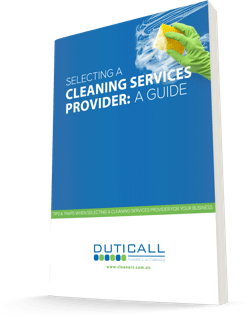Don’t Let your Floors Become a Risk this Summer!
Cintas Corporation, a US leader in floor safety programs, has recently released ’12 steps for holiday floor safety’ for its US audience in order for commercial properties to prepare for peak season patronage and (colder) wetter weather. But what about us? Our weather here in Brisbane is far more tepid than in the US, however many of you will still have busy foot traffic and a need to manage wet weather and the impact on your floor. We have shared with you the ’12 steps’ from Cintas Corp, and there are great tips, however, if you look at the information closely you will see that all the points made can be summarised by the fact that to keep floors safe you need to keep them clean. Have a look below…
Keep Floors Safe = Keep Floors Clean
Regardless of whether you may be a restaurant, club, public facility or office we hope you find these ’12 steps’, from Cintas Corp, useful:
- Protect entryways. Every exterior door should have several steps of matting leading into and out of it. Outside the building, use scraper mats to help remove particles before they enter (that is to keep floors safe you need to keep them clean). Place walk-off matting inside the door to absorb water and help prevent puddles from forming. Keep additional mats on hand to prepare for additional foot traffic during the holidays.
- Position mops for easy access. Rather than hiding mops in the back of the property where they are less likely to be used. Immediately mopping up a spill keeps your floors safe as it prevents a hazard – and at the same time, you are also keeping the floors clean.
- Assign someone to oversee the effort. Accountability plays a significant role in the success of a safe floor program. Keep things running smoothly by assigning a key person to oversee the program.
- Dedicate a ‘porter’ to clean up immediate spills. During high traffic periods, assign someone to the task of spill cleanup. They will keep floors safe, particularly if this person also is responsible for placing caution signs around the area to warn patrons of the hazard. Since this will require additional time and focus, offset some of their other responsibilities with additional staff support.
- Clear exterior walkways. When forecasts call for inclement weather, it’s just as important to know what’s happening outside the property as it is inside. As soon as rain begins to fall, keep sidewalks leading into the restaurant or other commercial premises clear. This will help prevent slips and falls outside of the property while also limiting the amount of debris patrons track inside on their boots and shoes – ie keep floors safe = keep floors clean and vice versa.
- Consider microfibre. To quickly and effectively remove water and dirt, considering using microfibre mops when cleaning floors. Microfibre can absorb up to three times its weight in water and up to 99 per cent of dirt and bacteria from the floor surface.
- Protect high traffic and transitional areas. Matting helps attract soil and prevent it from moving throughout the property, which can contribute to a slip and fall.
- Focus on puddle zones. When there is precipitation outdoors, puddle zones will likely form wherever people stand or sit. This includes waiting areas, foyers and tables. Pay close attention to these areas as they can likely be a source for slips and falls.
- Increase mat rotation frequencies. When a floor mat or mop reaches its maximum absorbency, it will no longer be effective. Whenever there’s an increase in traffic, mats should be changed out more often to remain effective at all times. Whether you rent or purchase floor mats or mops, work with the supplier to determine how often to rotate them based on weather and traffic considerations.
- Educate staff. Whether staff members are seasonal or full-time, educate them on the significance of keeping floors safe and on hazard free floor programs and the special role they play in protecting guests/visitors and each other. Cross-train workers so they can fill in for one another if someone is busy.
- Recognize star performers. When employees show a commitment to the floor safety program, recognize them for their efforts. This helps reinforce the positive behaviour to keep floors safe and enhance the opportunity for their participation.
- Deep clean. Many hard surface floors have a natural abrasiveness that can help improve slip resistance and reduce the opportunity for slips and falls. The problem is that as soil builds up and a floor becomes dirtier, less traction is available. To help keep floors safe, regularly deep clean them to remove buildup and improve the coefficient of friction to make the floors less slippery.
Duticall
Don’t let wet floors become a safety risk…..and a litigation risk. If you wish to discuss how this may affect your property please do not hesitate to contact the team at Duticall.


